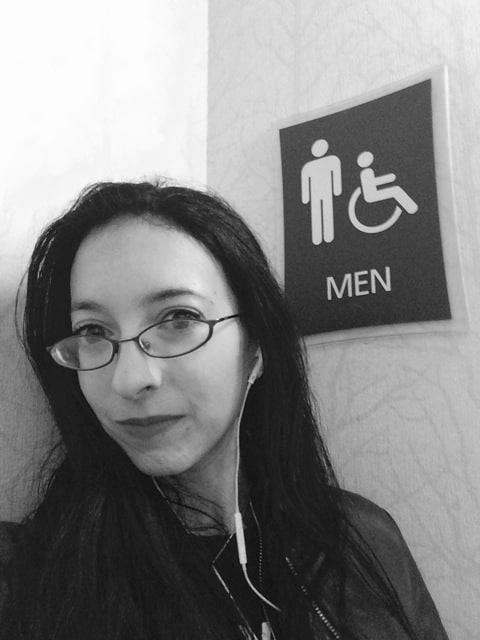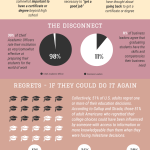For Tech’s Deepest Problems, Women Are The Canary In The Data Mine
Hardly a day goes by these days that we don’t hear stories about rampant sexual harassment in almost every industry; from entertainment to fashion, from hipster blogs to Congress to Silicon Valley. Groping, lewd comments, juvenile jokes, offers of sex in return for career advancement, nonconsensual touching, forced kissing, outright rape—rumors we might hear about in hushed tones at polite cocktail parties are now splashed across the front pages of the internet.
None of these misogynistic behaviors or attitudes are new, and in fact women have been putting up with it in Western civilization at least since, well, before there was Western civilization. What is new is the fact that a critical mass of women and men have had enough, and are speaking publicly about these pervasive but dark open secrets.
The southern Italian word omertà means “code of silence.” It refers to a tacit agreement among people to never rat to the authorities or speak out publicly about anything, no matter how bad. The punishment for violating omertà was often worse than any other offense. Omertà was strictly enforced in professional sports like cycling, where everyone knew about the doping but nobody said anything for fear of losing status, money, or worse–being harmed. It is exactly the same culture of omertà regarding sexual harassment in every other area: academia, tech, entertainment—speaking out about being sexually assaulted by a powerful man meant that women risked losing their livelihoods, their credibility—this is all on top of the indignity of suffering the original crime.
Author, activist, and former tech CEO Elissa Shevinsky was one of the early voices who dared to speak out about the female-hostile culture of venture capital and Silicon Valley. In 2013 Shevinsky published a viral piece called “That’s It—I’m Finished Defending Sexism in Tech,” which describes her trajectory from being a “get things done” entrepreneur to becoming a leading feminist voice in technology and beyond. In 2015 she collected the stories and essays of 19 female veterans of the tech industry into Lean Out, one of the first books to begin peeling back the layers of hypocrisy, secrecy, protectionism, and denial about sexual harassment across the industry.
The book proposes this simple but radical solution: Women should not try to adapt to the male-centric corporate world, instead women should “lean out” and create their own companies. “I’ve figured out a way to create safe space for myself in tech,” wrote Shevinsky.

In a recent conversation, we discussed how the culture of overwork contributes to the problem of misogyny in many companies, and about how the singular focus on growth and profit drowns out ethical concerns that in the long run ultimately ruins companies. We also spoke about how feminism has said all it can, and yet things don’t seem to be getting better. And we discussed how a hostile workplace for women often indicates that a company has other ethical issues as well.
One crucial upside of Shevinsky’s story: Silicon Valley—despite all the negative press it gets—is still a place where personal reinvention is possible and where things can change incredibly fast.
Fast Company: Did you have a name in the tech industry before Lean Out?
Elissa Shevinsky: Looking back, I had already, my freelance pieces, specifically “That’s it, I’m Done Defending Sexism in Tech,” that had gone so viral that I think that gave me this opening that people don’t normally get.
FC: Had Lean In already come out?
ES: Lean In was already established, but Lean Out wasn’t the premise yet. The premise was just, I’m going to write a book either of my memoirs or like women in tech. I’m going to do something in this space.
Related: It’s Time To Purge The Pervs From Politics—And Let Women Step In
FC: What is next for you?
ES: I’m putting together a radical book on work, because I think with feminism, there’s not much left to say, and now it’s just the question of why nothing’s getting better. Everybody spilled their guts and so there isn’t anything left for me to say in feminism that hasn’t been said as opposed to where I was two years ago.
FC: With all this stuff coming out about Uber, you’re obviously not surprised.
ES: There’s a story there. I’m not surprised, but I think mainstream America could learn about that a little bit more, and I think that people who’ve been following will see some satisfaction in having a bit more exposition.
FC: Do you feel vindicated somewhat by that?
ES: I feel vindicated that … I was harassed at a job really badly, really badly.
FC: In a scary way?
ES: There was a moment, there were several moments where I was scared. There were moments where people saw messages that were coming in, they were Slack messages and were like, “Whoa, is this person on drugs?”
There were moments where I felt like I’d exercised poor judgment in taking that job and I felt bad about putting myself in a situation where it was hard for me to leave a job when it was bad, because I didn’t have the money to just leave, and I was worried about how I would get another job. Looking back, at the time that I was interviewing, I was interviewing with a lot of companies, all of them have made headlines for big, big, big scandals. I feel vindicated that my judgment wasn’t so poor, but rather … the ecosystem’s so, so bad that we can’t even expect women or any people to navigate themselves into good situations.
FC: Because there are no good situations.
ES: There are some. I feel like I’m in a good situation now by navigating into the person I’m reporting to, now it’s this Israeli Jewish woman who, we really get along. She’s a woman, that already eliminates a certain, some of the misogynistic problems that can come up.
There’s things that you can do to be in a good situation. I’ve gotten wise and I’ve done that, but I feel vindicated that I didn’t select badly for situations. Rather, I’m like, “Wow, what if I’d gone to Google or Uber.” I was interviewing at Facebook, Google, Uber, Twitter, all these big companies and you think they’re going to be fine. All of them have made the news.
The only companies that I interviewed with that didn’t make the news for a scandal, a gender harassment scandal, is just because they were too small.
I feel vindicated that these experiences were [not] because I did something wrong. I think a lot of women internalize that and, also, I failed to raise as much money as I thought I would have based on my metrics at [my former startup] Glimpse, and I feel a little vindicated now seeing news come out about how women just can’t raise money.
There was a story that came out recently showing that if a woman’s on a team, people really just don’t fund you at nearly the same rates. I feel a little vindicated that we did as well as we did.
At the time I was like, I don’t know, I looked around and my metrics were comparable to these other people who raised millions of dollars, and I remember being like, “How come we’re not raising millions of dollars?” So i feel a little better.
FC: Do you feel like the reason that the tech industry hasn’t figured this out yet is because of the age of the industry? I’ve worked at big corporates and old companies and they have such strict processes and in a weird way, at these dinosaur giant companies, sexual harassment has been pretty much stamped out.
ES: In some ways, these companies with strong HR, it’s better.
FC: There’s just a zero tolerance thing [at big companies] and that, at the same time, they’re very rigid and very slow-moving bureaucracies, but I feel like that’s almost a protection. Here, it’s a little bit Wild West.
ES: That’s right. But we’re punk rock, right? I just want us all to be on the same team.
FC: That interacts with the kind of dangerous egotist male. How would you characterize that? What are the roots of this, because it is systematic or systemic or it’s endemic. It’s not just down to one bad person.
ES: When it comes to feminism, the women, and not only women, all the people who felt like this has impacted them, we have all spilled our guts. We all know what the problem looks like. The shape of the problem. But, that doesn’t fix the root causes. You have one root cause, which is just a kind of misogyny where people see women and they’re seeing them first as a person to date or you’re a replacement for mom, but they’re not seeing them first in a professional way and that creates all of these problems that have come out.
There’s also this problem where the profits and the efficiency is coming at the cost of people and we end up seeing the outcomes of that with women, and the people are perceived as vulnerable. But, the root problem is really deep. It came out that Uber in, I think it was Singapore, they were willing to have cars on the road where they knew that those cars could explode.
This just came out in the news. This is the root problem. You have companies like Uber and they are putting profit over safety. In this case, they knew that people could die, but it was going to be expensive to replace these cars that had had a recall.
This is a really cut-and-dry thing. A company should not have unsafe cars on the road. They’re putting their employees, they’re putting their customers at risk, and they’re saying, “No this is fine. It will cost too much money and be too difficult to do it another way.” When women and other people are harassed at Uber, it’s not that Uber hates women, women are a subset of “Uber doesn’t care enough about people.”
Women become the canary in the coal mine for these very deeply rooted problems, and so with my next book I want to explore what are these problems that are underlying what manifests as harassment and what manifests as misogyny. Really underneath it, there’s something. There’s something even deeper underneath.
Beyond Killers
FC: Do you think it’s possible to survive out here in Silicon Valley without having a killer instinct?
ES: How do we compete with killers?
FC: Would your vision be to try to create a tech ecosystem based on communal values rather than this value of just kill every other company?
ES: Yeah, what do you do when you’re up against an opponent who wants to kill you? What does survive or succeed mean in that context? With Silicon Valley, enough people have to decide that they want to not only be givers, or at the least be communal and be neutral, but that they’re going to support others like that.
The problem with a person like Travis, the problem with a company like Uber, is they make it very seductive and very sweet. They have really, really inexpensive rides, and convenient. You have to give up something as part of taking those companies down or not building them up.
We all built Uber. I gave Uber so much money, I took so many Uber rides.
FC: Me too. I’ve done it too. What can the ecosystem do?
ES: All the times I’ve left companies, my friends who have left companies, all the women who leave companies to “take care of their families,”,when that’s not really why. It has to be about companies wanting to be the best they can be. If you’re a whistleblower no one wants to hire you. The same way you submit a bug report you’re not a whistleblower about having a found a flaw in the app. It has to be less hostile for people to report sexual harassment.
FC: But in many companies, HR superficially encourages you to report sexual harassment.
ES: But it’s superficial. The process itself is still very hostile in many cases. The CFO has to be on board because they really believe you need a good work environment. All executives believe that perks are important. We didn’t have perks at the start of the industrial revolution, we didn’t have free beer, ping-pong tables, and health insurance. At some point everyone bought into the idea that it matters.
FC: At some point people have to buy into the idea that women don’t want an abusive work environment–like the ping-pong tables and free food are awesome, but if we could also not be sexually harassed at work that would be even better.
ES: Yes. I think it gets back to this idea of community. This is the problem. The problem comes in about who you define as part of your in-group and who you’re worrying about. The CEO of Exxon, his in-group and who he’s worrying about is the shareholders. The CEO of Exxon is doing a really good job of protecting his in-group at the expense of everyone else.
What we need to get better at is making our in-group like everyone on the planet, or in the case of Silicon Valley, all the people in Silicon Valley and starting to see everyone as equal in their citizenship. People are different, everybody’s different. We can’t say we’re all the same, we’re not all the same.
We’re equal as citizens and we’re equal in terms of … we all have to start caring about each other more. I think that the root cause of a lot of these problems is we’re growing our technological capacity exponentially but we’re not growing our moral and our ethical capacity exponentially ,or even a little bit.
FC: It seems we are maybe even going backwards.
ES: It’s unclear whether we are growing in an ethical and a moral sense. Maybe we are, but that’s less clear and I believe the real fix, the really hard fix will be for us to somehow become better moral actors. I don’t know how we’re going to do that.
What The Valley Can Be
FC: Where do you see this all going?
ES: I think that as women come to power more, women become CEOs and women sit on boards, women are going to be implementing practices that are less hierarchical and less violent. That’s where I’m actually going with this. I’m very optimistic about what will happen when you have more balanced distribution of women in power. Women need to build consensus overwhelmingly. Women need to make sure that everybody understands what’s happening.
We see this in the studies. It’s always difficult to come out and say a gender thing. It’s almost controversial for me to do that. I do believe that men and women in general have different communication styles. A man can adopt what’s a more feminine style, women can adopt a more masculine style. We all have these traits in different balances, but in general, this is what tends to happen.
As more and more women are in power, they’re going to build more consensus-driven, less hierarchical organizations and Silicon Valley will eventually be better.
Also, men are starting to wake up too. In 2012, 2013, I wasn’t aware of a lot of things and people made an effort to educate me. I’m seeing a lot of men going through the same process that I went through of becoming more aware of issues that they hadn’t thought about before.
When I was running my company, 2012, 2013, I just hired all white men. I wasn’t thinking about this. I hired all seemingly cis white men. I was just trying to hire people. I was not thinking about anything else. And now, when I make hires, I want to bring in a balance of people. I want to part of the movement to uplift more women of color to important roles.
I think about this now and I’m seeing men also starting to come around, so it’s not only women coming to power, it’s also men collectively and on an individual basis, evolving and becoming more moral actors and more thoughtful and more community-driven and less selfish and more about giving back.
Related: This VC Fund Is Taking A Cue From Philanthropy To Put More Women At “The Helm”
FC: Do you think that people can lose their moral compass in the culture of workaholism?
ES: I think it gets in the way. I’ve been thinking about that so much right now as I think about what I want to do over the next bit of time. I know that once I start something, I’ll get really in it and I won’t question it as much, because you take on responsibilities, so you get to a place where you’re responsible to your shareholders and your employees and you can’t stop what you’re doing because you’re on that treadmill and those obligations keep you tethered. You end up with these additional moral questions.
FC: In Silicon Valley that’s the thing, they’ll do your laundry, feed you, make your life amazingly easy. All you have to do is become a believer. Because it becomes the identity to a degree. Where you’re like, Who am I?
ES: There’s a deeper problem, which is this deeper loneliness and deeper lack of meaning and I felt this for myself. When I’m working at a startup, and it’s really exciting, it gives my life a lot more meaning and I don’t need to find it in other places. That’s good …
FC: Do you think Silicon Valley is making a contribution for or against humanity?
ES: I think people individually would be in a better place if they would do a check on themselves and say, “Am I making the most contribution that I can, am I doing work that’s important and meaningful, or am I accelerating the destruction of the civilization of the human race at large?
I think Silicon Valley is complex. I don’t want to just say all things are bad or all things are good. I think there’s a lot that’s good here. It’s not that simple. Silicon Valley is still a place where people are learning and growing quickly. Silicon Valley is a place where I came in in 2012, 2013, with a certain set of beliefs and skills and only what, five years later, I’d say I’m a dramatically better person for having gone through this machine. Not only a happier person, a person with more resources, a person with more friends, but a person who’s learned and grown a lot. That wouldn’t have happened in another environment.
If people are into it. It’s easy to see the negative and I just want to make sure at the start that that’s not the only thing that I’m saying. There’s this positive aspect and I’ve said this many, many times, not so new–it’s worth saying here short, quickly–which is that Silicon Valley’s a place where someone like me, in 2011, I was a failed expat. I tried to leave the country, it didn’t work out and I came back. My marriage had failed and I’d been married to someone who was a little bit of a homebody and I think I tend to….I get a little agoraphobic. If I really get into it, I can not leave the house for weeks and weeks. It’s actually just kind of smart. It’s expensive to leave the house, I don’t get anything done.
Some of that’s just pragmatism. Let me just stay home and be productive and not waste my time. I can get into a place where I’m very isolated and a lot of my work had been under my husband’s name, and some of his work was under someone else’s name. We were just working and building things that were very successful but weren’t really attributed to me. I came in 2011 with a lot of the knowledge but was really unknown in Silicon Valley. Two years later I’m on the cover of the New York Times. That’s Silicon Valley.
You have a woman like me, raised by a single mom, in Queens, not really that well connected. I don’t want to be like, “I’m so underprivileged,” because I did go to Williams College, I went to Cornell. I had things going for me. But I was unknown. I had no portfolio because of these mistakes I made and I was able to rise up really quickly here.
You have someone like Arlan Hamilton—Arlan Hamilton was homeless when she was raising her VC fund, and now she’s really one of the most well-known emerging VCs. She’s a lesbian, a woman of color. That’s Silicon Valley. One comes in with enough hustle and they can level up. I don’t want that to be left out of this conversation because there’s something valuable there, where not only people can learn and grow, but also reinvent yourself.
FC: Do you want to grab some food?
ES: That would be a great idea. Let’s do that.
Andrew Smart (@andrewthesmart) is a tech philosopher and writer based in San Francisco. He is the author of the books Autopilot: The Art and Science of Doing Nothing, Beyond Zero and One: Machines, Psychedelics and Consciousness, and the forthcoming Post Meta Trans Techno Bio: Biohacking Biocapitalism (OR Books). His work has appeared on Motherboard, Harvard Business Review and Psychology Today.
(28)












